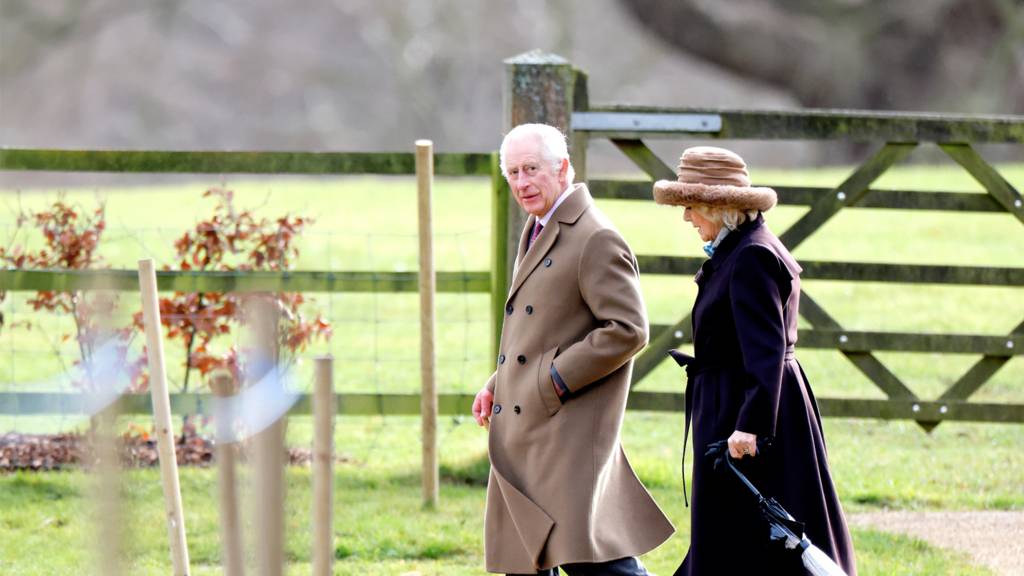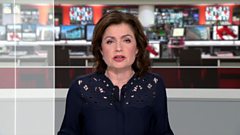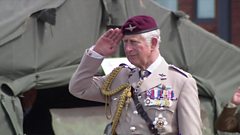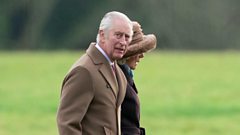
Live
King Charles spends night at home after starting cancer treatment
viewing this page
Related Video and Audio

Play video BBC News announces King’s cancer diagnosis from BBC

Play video Members of the Royal Family will ‘step up’ from BBC

Play video ‘Shocking year so far’ for Royal Family’s health from BBC

Play video Biden speaks about King Charles’s cancer diagnosis from BBC


Live Reporting
Edited by Owen Amos
Get involved
The King will continue his key constitutional role
Chris Mason
Political editor
When you examine the wiring of the British state, the core connections lie between monarch and government, between Buckingham Palace and Westminster.
While we are told we will see less of the King in public while he receives cancer treatment, much of his private work will continue.
He will continue to receive his red boxes, the daily exchange of paperwork at the heart of his role.
Take – as just one example – the passage of a law at Westminster.
After it has passed through all its stages in the House of Commons and the House of Lords, it heads to the Palace for what is known as Royal Assent.
A formality, yes, in a parliamentary democracy, but an illustration of the King’s key constitutional role.
Another example, again a formality, when the prime minister appoints a new minister, it is technically a Crown appointment – an appointment made by the King.
We understand the King’s weekly audiences with Rishi Sunak – a long standing convention going back decades and hugely appreciated by prime ministers – will continue.
Prince Harry to fly solo on London visit
Last night, Prince Harry’s team confirmed he will fly to London to see his father. The King told his family personally of his diagnosis, the Palace says.
We don’t know when Harry will arrive in the UK, but he is due to leave California “in the coming days”.
The Prince is expected to arrive in London on his own. His wife Meghan will remain in the United States with the couple’s two children – Prince Archie and Princess Lilibet.
Harry’s visit has raised hopes of a reconciliation within the Royal Family, amid the Duke and Duchess of Sussex’s troubled relationship with King Charles and Prince William.
Could anyone stand in for the King?
Sean Coughlan
BBC News royal correspondent
The King will pause his public events, although continue with his paperwork and private meetings.
It is understood his weekly audiences with Prime Minister Rishi Sunak will continue and will be in person, unless doctors advise that he limits such contact.
There is a constitutional mechanism for when the head of state is unable to carry out official duties – in that circumstance “counsellors of state” can be appointed to stand in for the monarch.
At present that includes Queen Camilla, Prince William, the Princess Royal, and Prince Edward.
Prince Harry and the Duke of York could no longer be called upon as they are non-working royals.